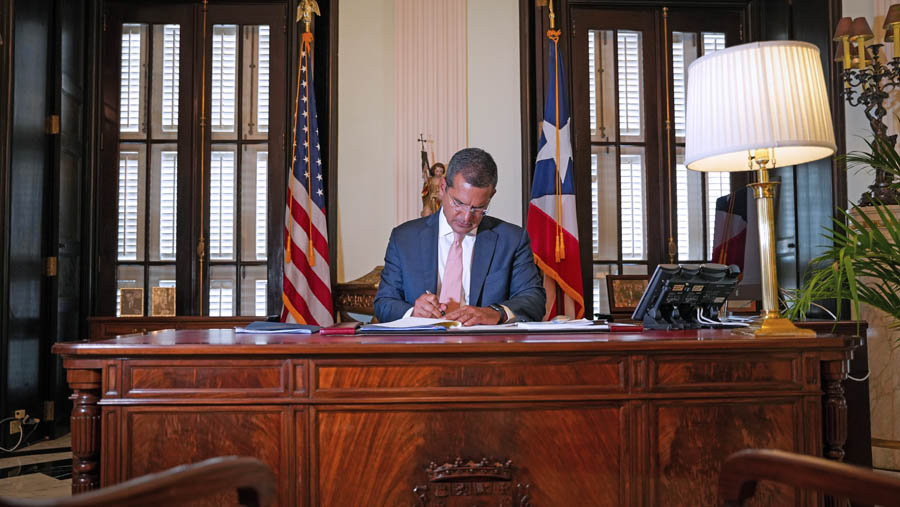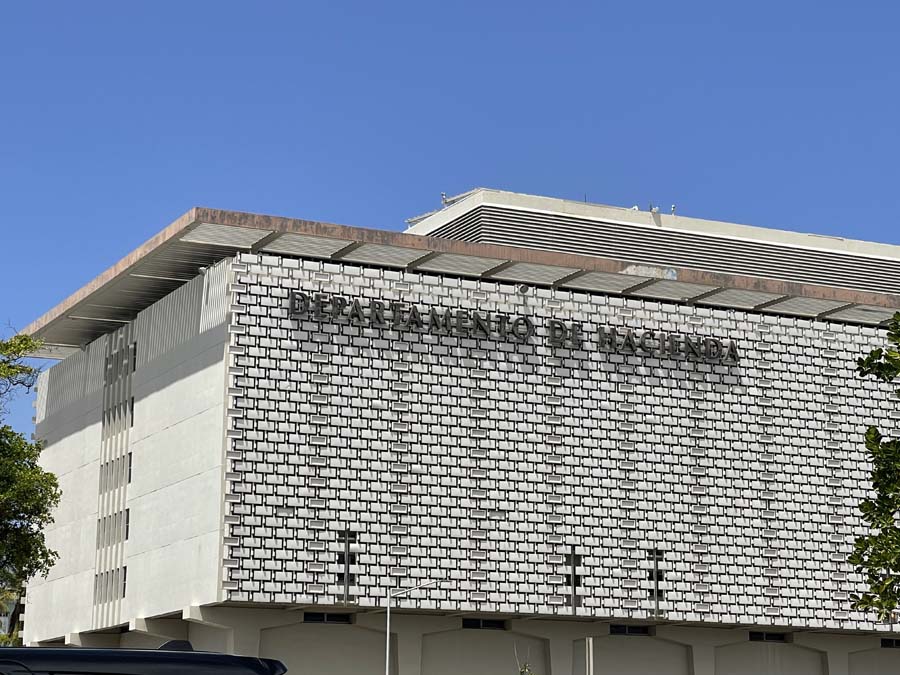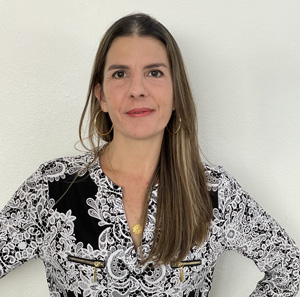Fiscal board certifies Puerto Rico’s 2023 fiscal plan

The executive director of the Financial Oversight and Management Board for Puerto Rico, Robert Mujica, announced that the island’s 2023 fiscal plan has been certified by the panel, and that it provides a blueprint for fiscal responsibility and sustainable economic growth.
At a news conference at the oversight board’s headquarters in Hato Rey, he said that the plan represents a collaborative approach to reform the education system and “ensures that billions of dollars invested in our public schools translate to improving outcomes for the children in them.”
The plan, he said, also represents a road map for tax reform to make more equitable, fair contributions to taxpayers and to finance the necessary government services and investments in Puerto Rico’s future. For the continuation of civil service reform, it will enable the government to deliver the services that the people of Puerto Rico need.
He added that the Fiscal Plan aims to ensure that critical projects to revitalize the island’s infrastructure are approved. “There is no time to waste, and the sense of urgency amongst the government will not be the exception,” he said. “The Fiscal Plan provides the foundation for solid infrastructure, reliable power, and well-maintained roads, and for this reason, the Fiscal Plan is a transformation plan. “This year’s revisions also give the Fiscal Plan a new structure.”
In a statement, Gov. Pedro Pierluisi said the plan is a “living document” that incorporates many areas of reform and fiscal responsibility that his administration is working on.
“We received the final document that was certified by the members of the Financial Oversight and Management Board, and our team is in the process of analyzing it,” the governor said. He also welcomed the inclusion of what he called initiatives to strengthen the public education system, reform the tax system, invest in government efficiency and to strengthen the business environment to further make the island an attractive investment destination.

Debt is ‘largely behind us’
The board’s Mujica noted that as the restructuring of Puerto Rico’s “massive debt” is now “largely behind us,” the panel’s sole focus “now is on cementing fiscal responsibility and working with the government in creating a solid foundation for economic growth.”
“Sustainable economic growth relies on responsible fiscal management and reforms that transform Puerto Rico’s education system, tax system, and its infrastructure,” he said. “The new Fiscal Plan is a Transformation Plan that defines those reforms critical for Puerto Rico’s future and for the life of every resident.”
Overall, Mujica said, the savings of more than $70 billion in the debt’s restructuring “are providing critical relief for the Commonwealth and an opportunity to begin investing in the budgets of the future.”
“This will allow the government to plan the future finances with more certainty,” he noted.
He said that fiscal responsibility still needs to be secured in the long term, but that achieving Puerto Rico’s fiscal responsibility and market access “means more than just restructuring the debt.”
“Puerto Rico has made significant progress in these areas, but continued improvement of the financial management institutions is of the most paramount importance,” the board’s director said.
Three pillars
Mujica said the plan consists of three pillars: strong financial management, with the implementation of a comprehensive agenda; a culture of public-sector performance and excellence through the continued implementation of and investment in Civil Service Reform; and investing for economic growth to ensure sufficient revenues to support the delivery of services.
The document envisions partnering with the Puerto Rico and U.S. governments on the education reform agenda to find a path for deploying the substantial financial resources effectively.
He said the board will be engaging with the government, leaders of Puerto Rico’s schools, educators, and non-governmental organizations (NGOs) to draft an “Education Development Blueprint” that “will prioritize future fiscal plan investments to improve education outcomes.”
Although over the past several years, the government of Puerto Rico has improved the tax system by implementing information reporting requirements and digitizing tax processes, the board said in its press release, significant reform is still needed because the island’s tax system suffers from “complexity, instability, and inconsistency.”

The plan calls for a review of Puerto Rico’s revenue structure as part of a tax reform to improve the income tax structure for individuals and corporations. The board said the government must continue its efforts to reduce the tax system’s “complexity, enhance equity, increase transparency, reduce tax administrative and compliance costs, and maintain, if not enhance, revenues.”
Any potential reform must be fiscally balanced, the board said, reiterating that it continues to require that all legislative proposals be revenue-neutral.
Citing greater competition in the global marketplace, Mujica stressed that Puerto Rico needs to improve its “business friendliness.” He added that there has been progress in improving elements of the business climate, including reducing the time required to register a property, but that more work needs to be done to improve the ease of doing business, including streamlining the regulatory environment and making the permitting process more efficient, as well as reducing occupational licensing.
Mujica said the local economy is on the road to recovery and that although the island’s low labor force participation has improved, it remains below U.S. states. However, he noted that unemployment is at historically low levels.
“Puerto Rico has made significant progress in the transformation of its energy system, and the government has successfully advanced the Public Private Partnerships that have helped move Puerto Rico forward,” the board said. “The power sector and business reforms defined in the Fiscal Plan are projected to increase Puerto Rico’s gross national product (GNP) by 0.60% by fiscal year 2026.”
GNP decline projected
Despite the unprecedented influx of federal funds that have strengthened the island’s economy, there are “persisting weaknesses in long-term economic growth,” the board said. “Puerto Rico’s underlying real GNP [gross national product], excluding federal disaster and stimulus funds, has not yet returned to the fiscal year 2016 levels. The Fiscal Plan projects a 0.7% decline in real GNP for the current fiscal year 2023, followed by a period of near-zero real growth in the coming fiscal years 2024 to 2026.”
Nevertheless, “with the right choices by the government, these non-recurring federal funds can be leveraged into sustainable longer-term growth and opportunity,” the board said.
The fiscal plan projects strong government revenue collections for the current fiscal year and fiscal year 2024, driven by the federal stimulus funds. However, government revenue is projected to return closer to its historic trend from fiscal year 2025 onward, in line with the projections of most U.S. mainland states, according to the board.
“The U.S. government has allocated an unprecedented amount of recovery and stimulus funds that are estimated at over $120 billion for Puerto Rico,” Mujica said. “Puerto Rico needs and deserves this support as a matter of fairness and equity. However, this support comes with expectations – expectations of responsibility, progress, excellence, and performance.”
Steps for recovery
For Puerto Rico’s economy to improve, fiscal decisions, reforms and initiatives must aim toward creating jobs and supporting economic development, the board said.
“The current economic recovery may slow if underlying challenges of Puerto Rico’s economy take hold, which is why the steps taken now are critical to prevent Puerto Rico from falling back into crisis and instead create a real foundation for sustainable growth,” Mujica said. “We will work with the government to strengthen the overall economy, improve the education system, tax reform, ease of doing business, the transformation of Puerto Rico’s infrastructure, and the continued effort to reform the way the government operates, which are essential elements for the prosperity of the people of Puerto Rico.
“The next step after this is not next year’s fiscal plan, the next step after this is to bring the stakeholders in the room, all of them, public sector, private sector, NGOs, bring them into the room and say: This is the problem … How do we solve it? The board is going to be part of that solution, working with them, but we have to have collaboration.”
Mujica replied to a question from News is my Business, saying that the board still needs to work with Pierluisi.
“The governor will send his budget document, we will go back and forth with them, we will work it out, and we have a deadline in the middle of May, and then we will go to the Legislature,” he explained.
In his statement Pierluisi added that his “vision is that we continue to do all the necessary work to ensure that our government has a sound fiscal position in the short and long term, and that the Board completes its work as soon as possible. To that end, we will continue to collaborate with the fiscal entity in everything that benefits our people, and when necessary, we will request changes to the Fiscal Plan to ensure that it meets the needs of the people and reflects the aspirations of our people.”












